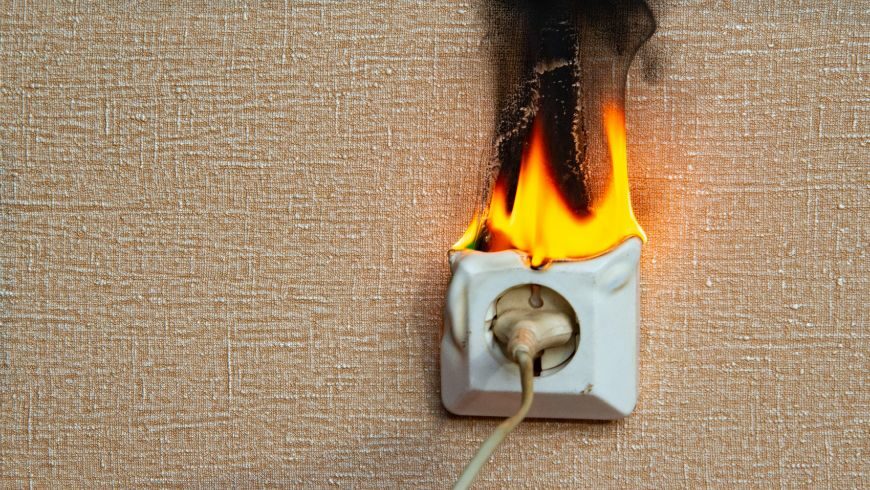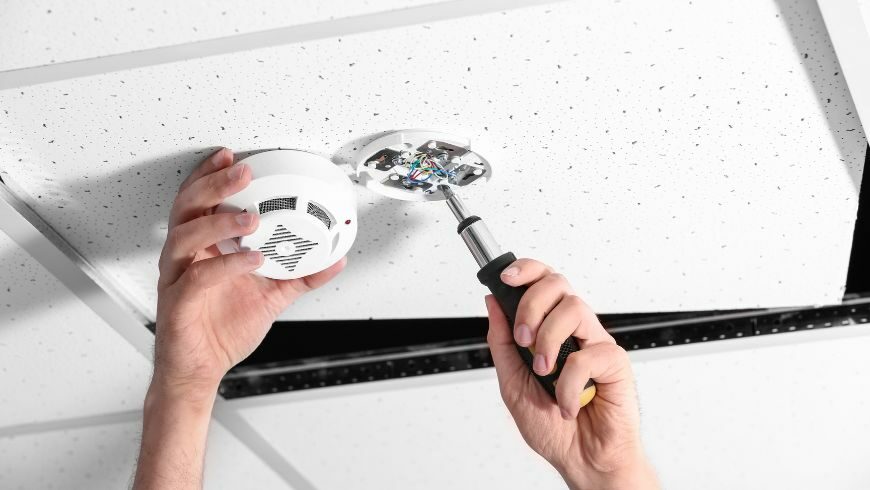Electrical fires can happen to anyone, whether you’re in a cosy apartment, a sprawling family home, or an eco-friendly lodging in the countryside. They often start quietly and with barely any warning; you might find a dodgy wire here, or an overloaded powerpoint there – and before you know it, the risks are very real.
Thankfully, you can avoid most electrical fires simply by putting some practical precautions in place and watching for potential hazards around the home. Quickly identifying problems and fixing them with that same level of urgency can mean the difference between a minor scare and a major disaster.
Let’s find out how to prevent electrical fires in your home or eco-accommodation to keep loved ones and guests safe.
Understanding Electrical Fires

Before we look at how to stop electrical fires, it certainly pays to understand why they happen in the first place.
Generally, electrical fires are the result of faulty wires, loose connections or overloaded circuits generating excessive heat that ignites nearby materials. It doesn’t take much effort for them to spark up, but they typically stay hidden behind walls or inside appliances until it’s too late.
Because they can smoulder for hours before you notice them, it’s well worth conducting a regular electrical safety check to identify the early warning signs and then act upon them. Knowing the common causes makes it significantly easier to spot potential issues and create a safer home.
Common Causes of Electrical Fires
As we know, overloaded circuits and outdated or faulty wiring can spark electrical fires, but they’re not the only guilty parties. Be aware of these potential hazards too:
- Faulty or old wiring that overheats and sparks behind your walls.
- Overloaded circuits caused by plugging too many devices into one power point or extension lead.
- Damaged or frayed cords that enable electricity to escape and ignite nearby materials.
- Outdated appliances without modern safety features.
- Incorrectly installed power points that lead to loose connections and heat generation.
- Misuse of extension leads or power strips which can overheat if not used correctly
Stay aware of these triggers and act on them if or when something arises. Scheduling regular checks and addressing issues promptly with a licensed electrician will help lower the potential for a devastating electrical fire in your home.
Electrical Hazard Warning Signs To Watch Out For
Be aware of the signs that your home’s electrical system may be compromised. Red flags include:
- Flickering or dimming lights suggest you possibly have loose wiring or faulty connections.
- Frequently tripping circuit breakers point to overloaded circuits or more serious faults at play.
- Buzzing or crackling sounds near power points typically mean wiring issues hidden behind the wall.
- Discolouration or scorch marks around sockets mean they are overheating or even melting.
- A persistent burning smell especially if it’s plastic-like means smouldering insulation
- Heat radiating from plugs, switches or appliances just should not happen if everything is in order
To avoid costly repairs and prevent further damage to your home, call a licensed electrician for professional assistance if any of these warning signs occur.
Always Use a Licensed Electrician For Essential Repairs
Many of us like to think we can demonstrate a bit of DIY prowess around the house when we need to. When it comes to electrical work, however, that’s something you should always leave to the experts.
In Australia, it’s against the law for an unlicensed person to carry out any electrical work in and around the home beyond changing a light bulb or resetting a circuit breaker. And for good reason, too. Attempting to flex your DIY muscle drives up the risk of fire and injury. You can also void your home insurance and breach local regulations.
By calling a licensed electrician for essential electrical maintenance and repairs, you can have peace of mind knowing the work meets legal and safety requirements. You also have a better shot at avoiding electrical fires in the future.
Keeping up to Code
Staying on top of the local building regulations and safety standards is key to preventing electrical fires and keeping your home safe. Modern homes may still have old wiring or lack essential protective devices if the electrician took a few shortcuts during the installation process.
Regular checks by a qualified electrician will give you peace of mind that circuits, electrical switchboards and earthing systems meet the current safety standards. Upgrading an old fuse box to a modern switchboard with Residual Current Devices (RCDs) lowers the risk of electric shocks and faults. Compliance with the current codes is a legal requirement in many areas and can affect your home insurance.
By addressing potential issues proactively you have peace of mind and protect your investment.
Additional Preventative Measures You Can Put In Place

There are many practical steps and preventative measures you can put in place to lower the risk of an electrical fire in your home. Consider the following:
- Avoid overloading power points by spreading appliances across multiple circuits.
- Turn off or unplug any unused devices to reduce the strain on your system.
- Install surge protectors to help protect against power surges that can damage electronics or cause overheating.
- Use extension cords sparingly and temporarily, and make sure they are appropriately rated for the appliances in your home.
- Install smoke alarms throughout your house, especially in kitchens and bedrooms to sound off early in the event of a potential fire.
Together these measures create a safer more secure home.
Stay Safe and Sound at Home
Electrical appliances and devices are part and parcel of 21st-century living, but do also open up the possible risk of an electrical fire. Thankfully, you can prevent fire from occurring by maintaining awareness of the potential warning signs and making sure you use a licensed electrician for all installations, maintenance and repairs.
By spotting hazards like frequent breaker trips or weird buzzing sounds, you can catch and nip small issues in the bud before they blow out into big problems. Proactive measures prevent costly damage and harm to loved ones. It’s wise to review these measures periodically especially as technology evolves and new appliances come into the home.
With regular maintenance, household electrical systems run smoothly and everyone can rest easy knowing that they’ve lowered the risk of electrical fire.
